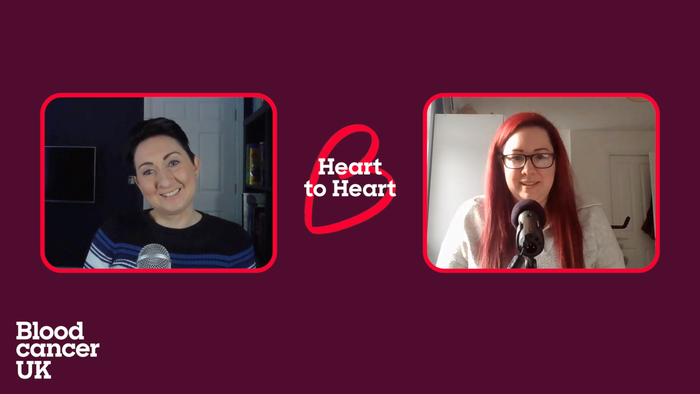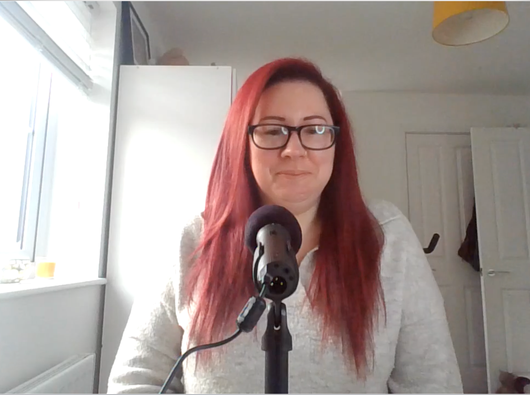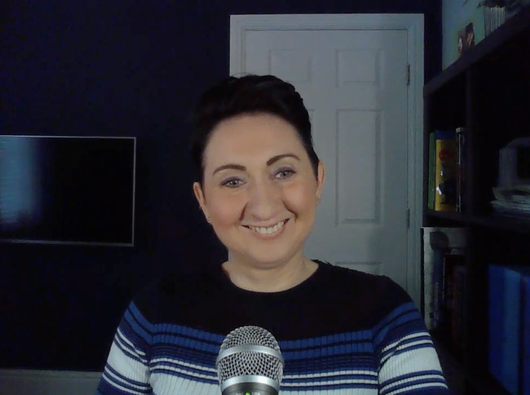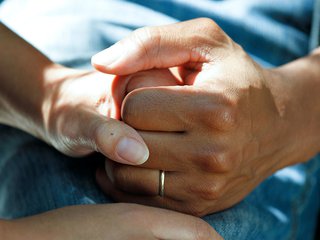I want others to listen and know they're not alone
The new Blood Cancer Heart to Heart podcast takes an honest look at what's it's really like when someone you love is diagnosed with blood cancer.

It all started as part of a project to improve our information for family members and friends with the help of a small group of volunteers who don’t have blood cancer themselves, but are close to someone who does.
Together, we felt it would help if there was a more open discussion about how a blood cancer diagnosis changes life not just for the patient, but for everyone around them. We wanted to find a way to present genuine conversations about the experiences of family and friends. And the best way to do that? A podcast!
Episode one
The first episode of Blood Cancer Heart to Heart features Gail and Kayleigh, whose partners are now in remission after intensive treatment. They talk frankly about going from partner to carer overnight, and how they are readjusting after treatment finishing.
Listeners may find it an emotional experience, but one that gets to the heart of the matter.
It was very frank, which was perfect as a lot of the content out there seems to sugar coat the reality. Definitely brought back some of the feelings that I had which I think is much more useful that just telling people that everything will be easy.
- Survey respondent
Not listened yet?
Search Blood Cancer Heart to Heart on your preferred podcast app or follow one of these links:
The response so far
People have responded positively to the pilot since it launched, giving feedback through an online survey, on social media and on various podcast apps.
Gail and Kayleigh really wanted their conversation to help others in a similar situation, and it seems they already have:
I loved listening to this, my husband was diagnosed in October and so often I think I’m the only person going through this. So good to hear others talking about it. Really hope there are more of these podcasts on the way.
- Podcast reviewer
In my relative's journey I was at one point critical of why his partner was almost hiding the brutal truth of his condition at times, but hearing Gail and Kayleigh explain why they did this helped me understand it's a more common reaction.
- Survey respondent
Why a podcast?
We know that people in our community seek out personal stories to help them understand and process their own experiences. So we thought, as it’s real voices that people want to hear, the best medium is surely to record those voices? We wanted to get as close as we could to an authentic conversation between two people, sitting together and sharing their experiences with each other. But with others listening in.
We also hoped that presenting stories like this might help us reach more people with useful information – people who don’t already access our information and perhaps aren’t aware of the support we can offer as a community.
Kayleigh, whose fiancé Mart is living with myeloma
"For others to listen and know that they’re not alone in feeling the way they do is really important to me. I’ve learnt so much from other patients, partners and family members, so I like to share our experiences in return. Even if it just helps one person it is worth doing.”

Making the pilot
Working with Cardiff-based production company Bengo Media, we recorded Gail and Kayleigh in their own homes. Gail lives near Newcastle and Kayleigh in Hampshire, so being able to record the conversation virtually means we can bring people together, no matter where they are.
We recorded over an hour of conversation, which we edited down to about 40 minutes. Finally, we added an introduction voiced by Lauran, one of our brilliant support team nurses.
Gail, whose husband David is in remission from non-Hodgkin lymphoma
“Taking part was really therapeutic. Other people might feel different or have different experiences, but I hope they’ll hear something that strikes a chord and they'll know it’s OK to feel how they’re feeling."

The future
We plan to make a limited series of six episodes covering different situations and relationships, including losing a loved one to blood cancer. But we will evaluate the success of the pilot first – we need to be sure that this is an effective way to support carers, relatives and friends, and your feedback will help us make that decision!

Do you have a loved one with blood cancer?
Get practical and emotional help to take care of them, and look after yourself.
